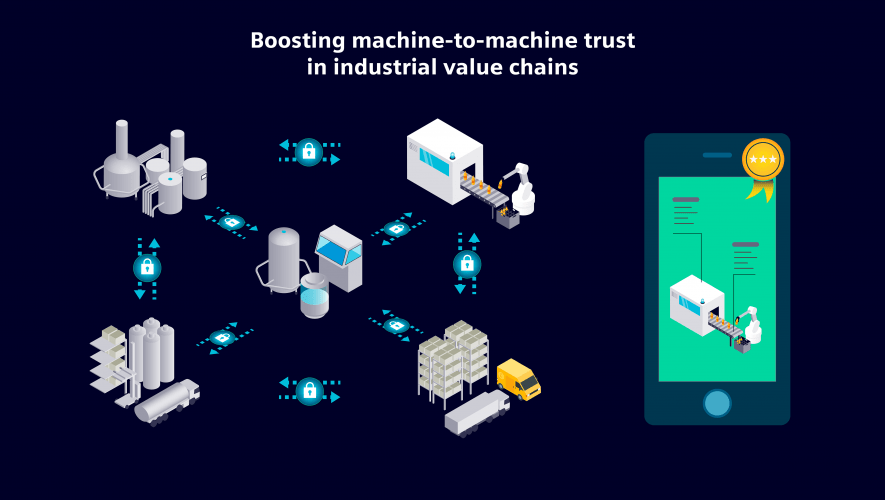“At Merck, we have been guardians of quality for centuries and now, we aim to transfer this value proposition to the digital machine-to-machine connected world,” said Laura Matz, Chief Science and Technology Officer of Merck. “Our collaboration with Siemens has clear potential to disrupt quality control and assurance operations across all kinds of industries. Enabled by an unprecedented level of digital trust, certified machine-to-machine cyber-physical communication will not only boost quality, transparency and traceability of products along value chains but will also enable new business models.”
“Value chains and product lifecycles must become more transparent and sustainable. That is why together with Merck we will develop a completely new digital solution that enables “trustworthy” communication between machines, for example, for the exchange of production data and laboratory data. Our customers will be able to produce more efficiently while ensuring sustainability and quality of their products in a wide range of areas – from personalized medicine to food and beverages to high-tech electronics,” said Cedrik Neike, Managing Board Member of Siemens AG and CEO of Digital Industries.
Due to the increasing complexity of value chains, the current traceability, transparency and quality control requirements are growing exponentially. To drive forward the Industrial Internet of Things (IIoT), which is rapidly transforming value chains and manufacturing across all industries, there is a pressing need for effective and secure data and information exchange. Nevertheless, within the current IIoT context, there is a lack of M2M communication regarding the quality status of many products. Consequently, the targeted solution aims to provide a framework for an efficient M2M interaction.
The targeted solution would provide all parties involved in the value chain with an immediate single-source-of-truth access point to trusted data and enable new levels of traceability, transparency, safety, and quality of industrial products. This could eventually allow customers to generate disruptive business models such as pay-per-part or pay-per-performance, which would be driven by machines in the IIoT.



